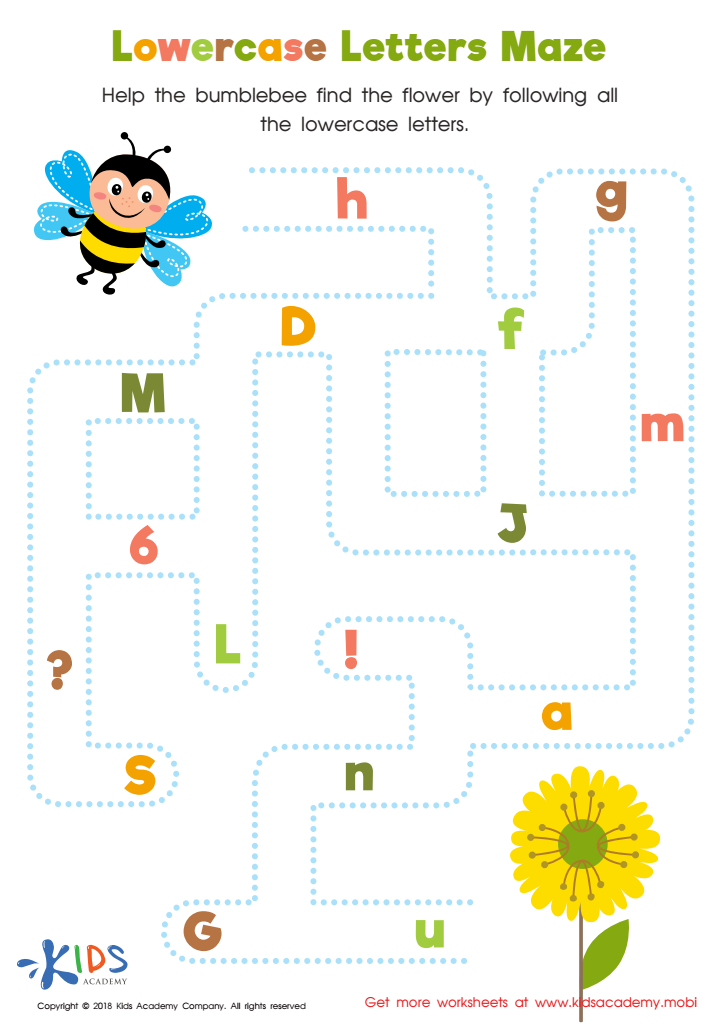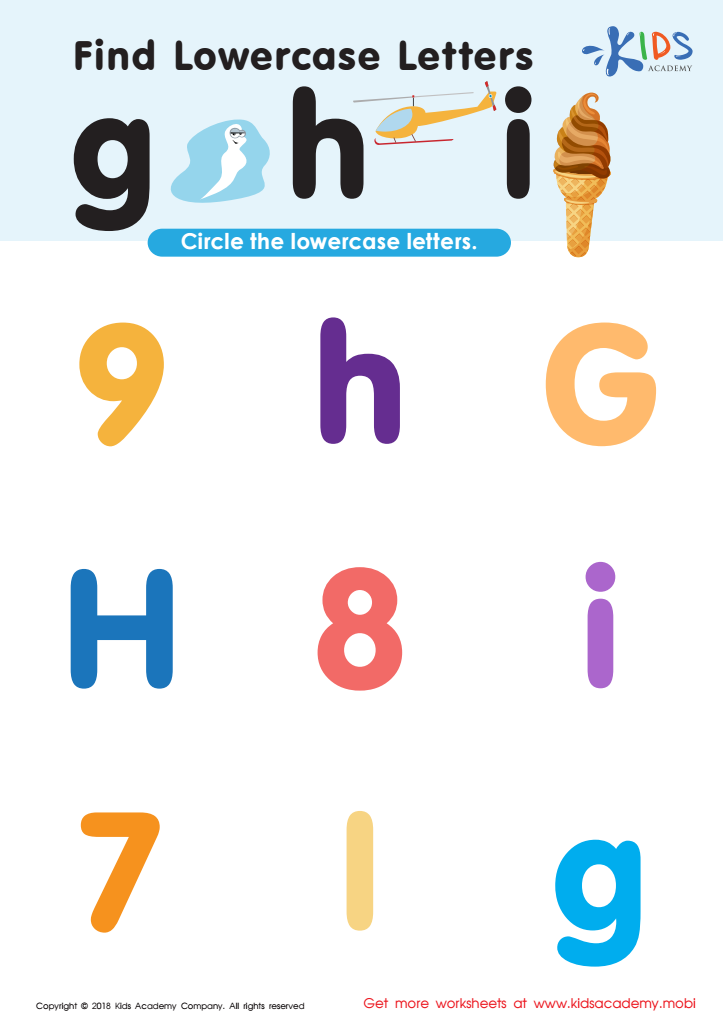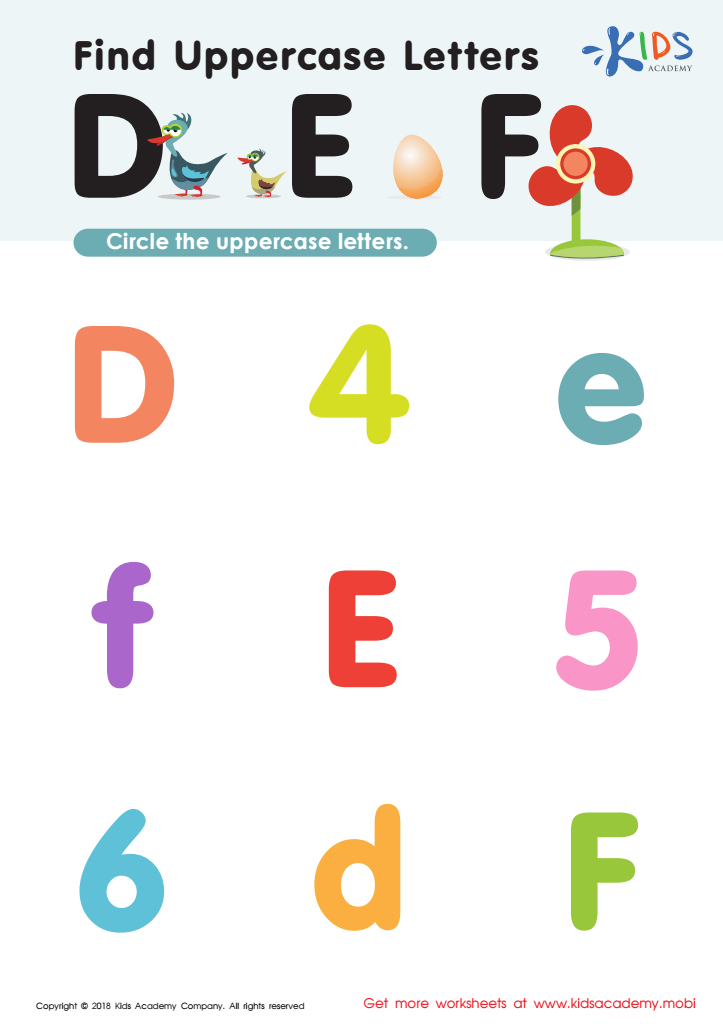Hand-eye Coordination Upper & Lowercase Letters Worksheets for Ages 5-9
3 filtered results
-
From - To
Enhance your child’s hand-eye coordination with our specially designed Upper & Lowercase Letters Worksheets for ages 5-9. These engaging and educational printable activities help children practice writing both uppercase and lowercase letters, guiding their movements to improve fine motor skills. Perfect for young learners, our worksheets not only boost writing proficiency but also nurture the essential connection between hand, eye, and mind. Ideal for classroom and home use, each worksheet provides clear instructions and fun exercises to make learning enjoyable. Prepare your child for academic success with tools designed to develop crucial early literacy skills at Kids Academy!


Lowercase Letters Maze Worksheet


Find Lowercase Letters g h i Worksheet


Find Uppercase Letters D, E, and F Worksheet
Hand-eye coordination is a critical skill for young children aged 5-9, especially when it comes to learning to write upper and lowercase letters. This coordination is the harmonious management of visual inputs with hand movements, essential for various daily tasks and foundational learning activities.
For parents and teachers, focusing on hand-eye coordination while learning to write is important because it directly impacts a child's academic success and motor skills development. Proper coordination allows children to write letters neatly and correctly, which is crucial for effective communication. When children can seamlessly form letters, they can focus more on expressing ideas rather than struggling with the mechanics of writing.
Furthermore, strong hand-eye coordination supports other important skills such as reading. Recognizing and differentiating between upper and lowercase letters contributes to phonetic understanding and word recognition, key components of early literacy.
In addition, these coordination skills are tied to fine motor development, improving tasks like cutting with scissors, tying shoelaces, and even playing musical instruments. Enhancing this skill set also contributes to self-esteem and independence, as children feel more competent in their abilities.
By investing time in developing hand-eye coordination for writing, parents and teachers lay the groundwork for comprehensive educational development, ensuring children possess essential skills for broader learning and everyday life.
 Assign to My Students
Assign to My Students

















